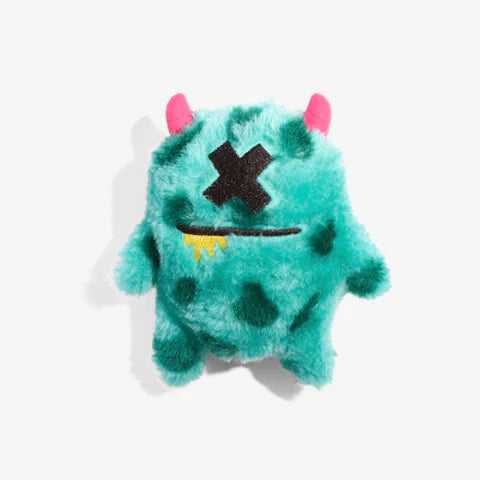Many pet owners have experienced the curious behavior of their dogs pretending to be sick. This fascinating phenomenon often leads to questions about the motives behind such actions. Dogs may feign illness to elicit more attention from their owners, seeking affection and care as a response to perceived neglect or routine changes.
Understanding this behavior can help owners respond appropriately. Dogs are incredibly perceptive and often know how to manipulate their humans for desired outcomes. Recognizing the signs can differentiate between a genuine need for help and a clever ploy for more cuddles and treats.
As insightful observers of human emotions, dogs can sense when their owners might be busy or distracted. This ability drives some dogs to act unwell, effectively capturing their owners' focus. By learning more about this behavior, owners can foster a better relationship with their pets while ensuring they remain attentive to their genuine health needs.
Understanding Canine Behavior
Canines often exhibit behaviors that may seem puzzling, including simulating illness for increased attention. Exploring how dogs communicate through these actions reveals key insights into their motivations and psychological underpinnings.
Communication Through Illness Simulation
Dogs are adept at using various forms of communication to express their needs and desires. When a dog pretends to be sick, it may be showcasing a form of non-verbal communication aimed at attracting the owner's attention. This can include lying down more than usual, reluctant to move, or exhibiting signs of lethargy.
Owners often respond with increased care and concern during such incidents. This reaction reinforces the dog's behavior, leading them to repeat it when seeking affection or reassurance. Recognizing this form of behavior can help owners respond appropriately, addressing the dog's real needs more effectively.
Psychological Basis for Pretending
The act of faking illness can also stem from deeper psychological mechanisms. Dogs, like many animals, experience a range of emotions, and they may use illness simulation as a coping strategy. This behavior can be associated with feelings of anxiety, boredom, or even jealousy when other pets or people receive attention.
Additionally, dogs may learn that certain behaviors yield positive outcomes. For instance, if a dog notices that feigning a sickness brings treats or extra time with their owner, they are likely to continue this behavior. Understanding these motivations allows owners to provide a more enriching environment that minimizes the need for such attention-seeking actions.
Detecting Pretense in Dogs
Understanding how to identify when a dog is pretending to be sick can help owners respond appropriately. Certain signs may indicate that a dog is using illness to gain attention or affection.
Signs of Feigned Illness
Dogs may display specific behaviors when pretending to be unwell. Key signs include:
- Lack of Genuine Symptoms: If a dog shows symptoms like lethargy or loss of appetite, but still engages in play at times, it may be feigning illness.
- Attention-Seeking Behavior: Dogs might paw at their owner, seek close contact, or whimper more frequently during these instances.
- Response to Attention: If a dog improves in demeanor when receiving attention, it could indicate that the symptoms are not genuine. Owners should monitor any change in behavior after interaction.
Being aware of these signs helps differentiate between genuine health issues and attention-seeking behavior.
Veterinary Insights on Detection
Veterinarians often assess physical signs and behavioral patterns to determine a dog's health state.
- Physical Examination: Vets will perform assessments such as checking vital signs and looking for any physical abnormalities.
- Behavioral Assessment: Observing how a dog acts in the clinic versus at home can provide insight into whether the dog is unwell or simply seeking attention.
- Communication with Owners: Owners are encouraged to relay specific changes in behavior to aid in diagnosis. Clear communication helps veterinarians discern between feigned illness and real medical concerns.
Understanding these veterinary insights can aid owners in making informed choices regarding their dog’s health and behavior.
Interactions Between Dogs and Owners
The dynamic between dogs and their owners plays a significant role in how behaviors, such as faking illness for attention, are developed and reinforced. Understanding these interactions highlights the importance of attention in shaping canine behavior and strengthening emotional bonds.
The Role of Attention in Dog Behavior
Attention is a critical currency in the relationship between dogs and their owners. Dogs often exhibit behaviors that they have learned will elicit a response from their humans. This may include pretending to be sick or showing signs of distress. When owners react with concern, it reinforces the behavior.
Here are key points regarding attention-seeking behaviors:
- Behavioral Reinforcement: Dogs quickly learn which actions gain them the desired attention.
- Responses Vary: Depending on the owner's reaction, dogs may repeat or modify their behaviors.
- Communication Medium: Dogs communicate through body language and vocalizations to express their needs.
This attention-seeking behavior often creates a feedback loop. The more attention a dog receives for a specific action, the more likely they are to repeat it.
Strengthening Dog-Owner Bonds
Interactions characterized by attention can deeply influence the bond between dogs and their owners. Positive reinforcement through attention leads to trust and emotional closeness. When an owner responds positively, it builds a foundation of mutual understanding.
Consider these factors in strengthening bonds:
- Routine Interactions: Regular playtime and affection foster a stable relationship.
- Quality Attention: Engaging activities enhance the connection more than mere presence.
- Recognizing Signals: Understanding a dog's cues strengthens communication and empathy.
These elements contribute significantly to a dog's emotional health and social development. Positive interactions, including playful behaviors and attention-seeking tactics, deepen the human-animal relationship.
Managing Attention-Seeking Behavior
Addressing attention-seeking behavior in dogs, especially when they pretend to be sick, requires effective strategies. These techniques focus on training and creating an environment that discourages such behaviors.
Training Techniques to Discourage Pretense
Training is an essential component in managing a dog's attention-seeking behavior. Owners can start by rewarding calm and appropriate behavior rather than paying attention to the dog when it pretends to be sick.
-
Positive Reinforcement: Praise and treats should be given when the dog exhibits desirable behavior, such as lying quietly or engaging in play.
-
Ignore Unwanted Behavior: When a dog pretends to be sick, ignoring this behavior can help reduce its frequency. Attention, even negative, reinforces the behavior.
-
Command Training: Teaching commands such as “sit” or “down” can redirect the dog’s focus. When they comply, they receive attention, which reinforces the desired behavior.
Creating a Structured Environment
A structured environment can help mitigate attention-seeking behaviors. Consistency in daily routines provides dogs with a sense of security.
-
Set a Schedule: Regular feeding, walking, and playtimes help dogs understand when they can expect attention. This reduces anxiety that may lead to attention-seeking.
-
Provide Enrichment: Engaging toys and activities can keep a dog occupied. Puzzle toys or treat-dispensing devices can divert attention from attempts to seek care.
-
Clear Boundaries: Establishing rules about acceptable behavior helps dogs learn what is expected. Clear boundaries reduce confusion and promote a positive relationship between owner and pet.








